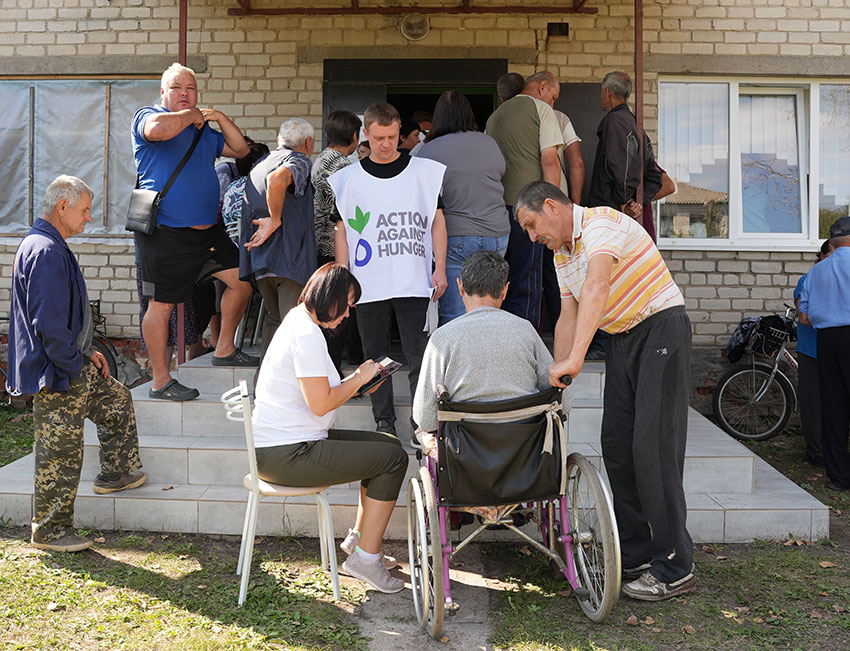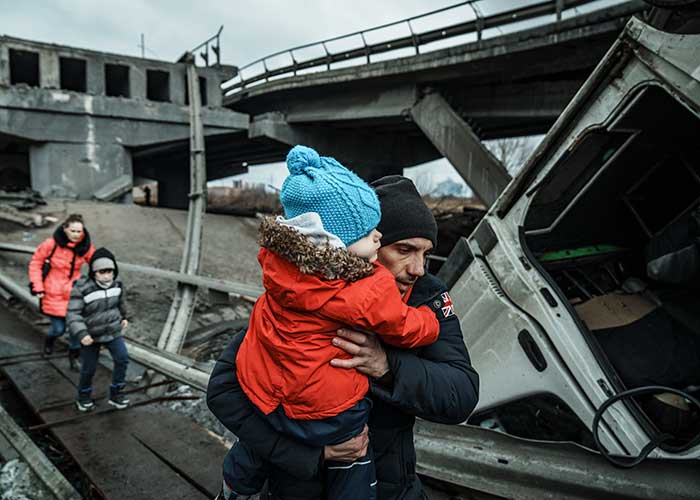“The fighting was getting closer to our home and the strikes were multiplying,” explains Nadezhda, who fled Mariupol with her husband and two children. “We ran out of food and the children were hungry.”
The family – already displaced in 2018 from the Donetsk region – settled in Zaporizhzhia, a city that’s also under constant threat of bombardment.
She remembers the start of the conflict in vivid detail. “On 17 March, we boiled the last packet of pasta because there was really nothing else,” she recalls.
“Then, miraculously, on the morning of the 18th we managed to leave. We took a rucksack with documents and a small bag with baby things. We only took what we could carry.”
What remains of Mariupol, an industrial town on the shores of the Sea of Azov, is a devastated landscape. Nadezhda, like the 350,000 residents who managed to leave the town, will always remember the violence she experienced. Her story echoes those of millions of people forced to leave their homes to seek shelter in other parts of Ukraine or abroad.
For most of them, the level of destruction at their homes means that returning is unthinkable.
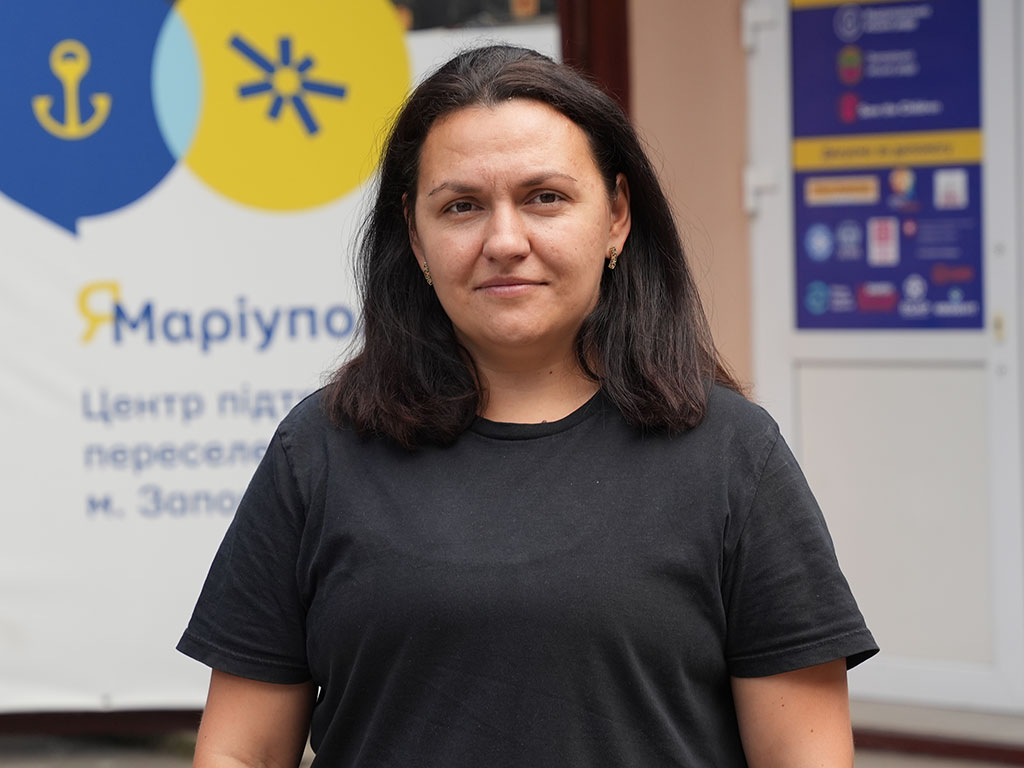 Nadezhda has been displaced twice as a result of the conflict. This first time was in 2018 from the Donetsk region, and the second time from Mariupol to Zaporizhzhia in March 2022. Photo credit: Action Against Hunger/ Arthur de Poortere.
Nadezhda has been displaced twice as a result of the conflict. This first time was in 2018 from the Donetsk region, and the second time from Mariupol to Zaporizhzhia in March 2022. Photo credit: Action Against Hunger/ Arthur de Poortere.
The alarming humanitarian situation in Ukraine
Some people, like Valentyna from the Kharkiv region, have had to abandon their farms because the land is mined. Others, like Yuri from Mariupol, are struggling to find work to support themselves in the current economic crisis. After two years of war in Ukraine, millions of lives have been shattered.
Since February 2022, the Ukrainian population has faced increased levels of poverty. Many are now dependent on aid.
65% of Ukrainian households have seen their incomes fall and almost 44% of them are struggling to survive despite receiving government assistance.
Displacement, the loss of loved ones and lack of jobs are all putting a strain on the mental health of Ukrainians. It’s estimated that a quarter of the Ukrainian population suffers from a form of mental illness – an upward trend as the conflict drags on.
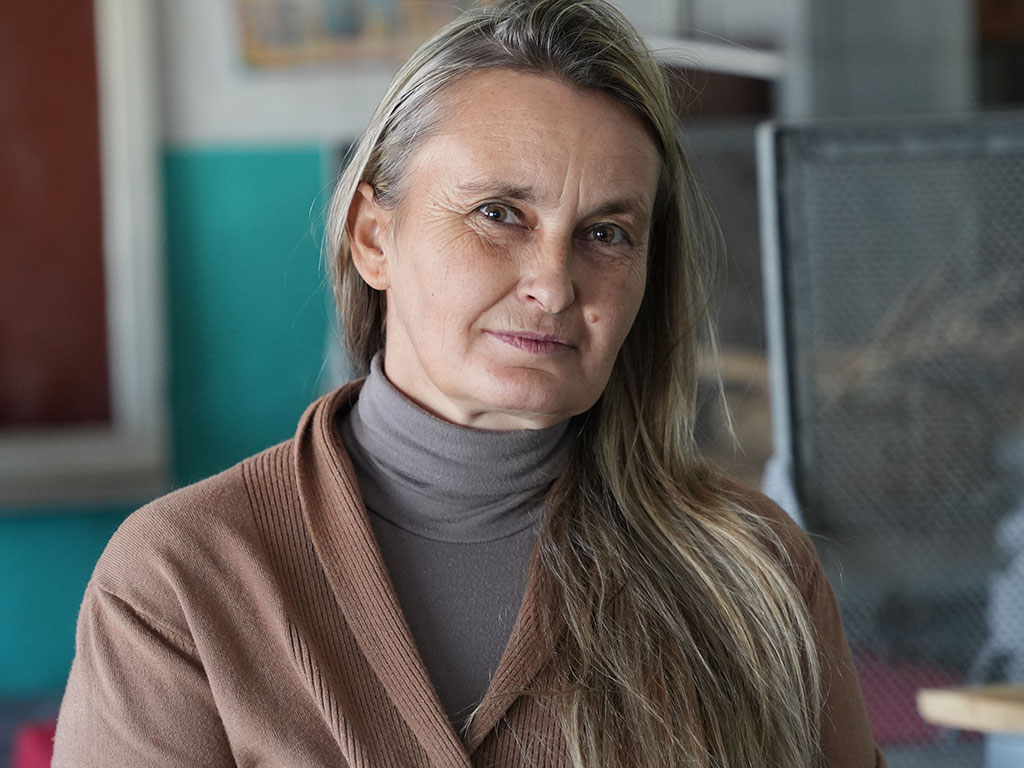 Valentyna has been receiving mental health support after she witnessed a traumatic incident during the war. Photo credit: Action Against Hunger/ Arthur de Poortere.
Valentyna has been receiving mental health support after she witnessed a traumatic incident during the war. Photo credit: Action Against Hunger/ Arthur de Poortere.
Why humanitarian aid has been so important
For some, humanitarian aid has been critical. By receiving mental health support, Natalia overcame the loss of her father and the trauma of the conflict.
Maksim, who hasn’t been able to go to school for 4 years, feels that he’s grown up and regained his self-confidence thanks to the psychological support sessions for teenagers at a shelter in Dnipro.
Nadiya and her husband, both now unemployed following the closure of the school they worked at, have benefitted from financial supports that’s helped them to make ends meet.
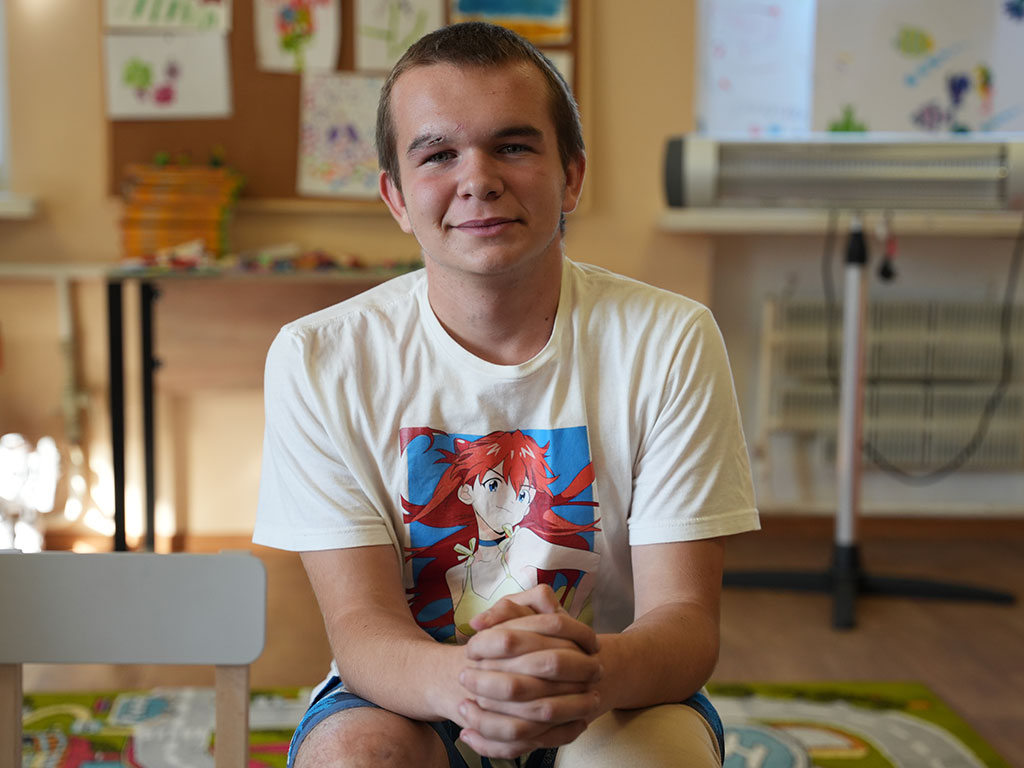 Maksim lives in a shelter with his grandmother. He’s been receiving mental health support since being injured during a bombing in the Donetsk region. Photo credit: Action Against Hunger/ Arthur de Poortere.
Maksim lives in a shelter with his grandmother. He’s been receiving mental health support since being injured during a bombing in the Donetsk region. Photo credit: Action Against Hunger/ Arthur de Poortere.
Action Against Hunger’s programmes in Ukraine
We continue to work with local partners to support people affected by this devastating conflict.
In total, since March 2022, Action Against Hunger has provided humanitarian aid to more than 500,000 people across Ukraine.
Our programmes aim to:
- improve food security by increasing access to good-quality nutritious food
- provide healthcare and mental health support
- guarantee access to clean water, safe toilets, and good hygiene
In partnership with the World to Ukrainian Association, we provided hot meals to people following the destruction of the Nova Kakhovka dam that caused widespread flooding. Upstream of the dam in Pokrovsk, together with humanitarian partners and the local water management authorities, we distributed 573,000 litres of water to the 52,000 people living there.
Although the water and sanitation infrastructure was already ageing before February 2022, the conflict has accelerated its decline. To guarantee access to drinking water, we repaired Pokrovsk’s water treatment plant.
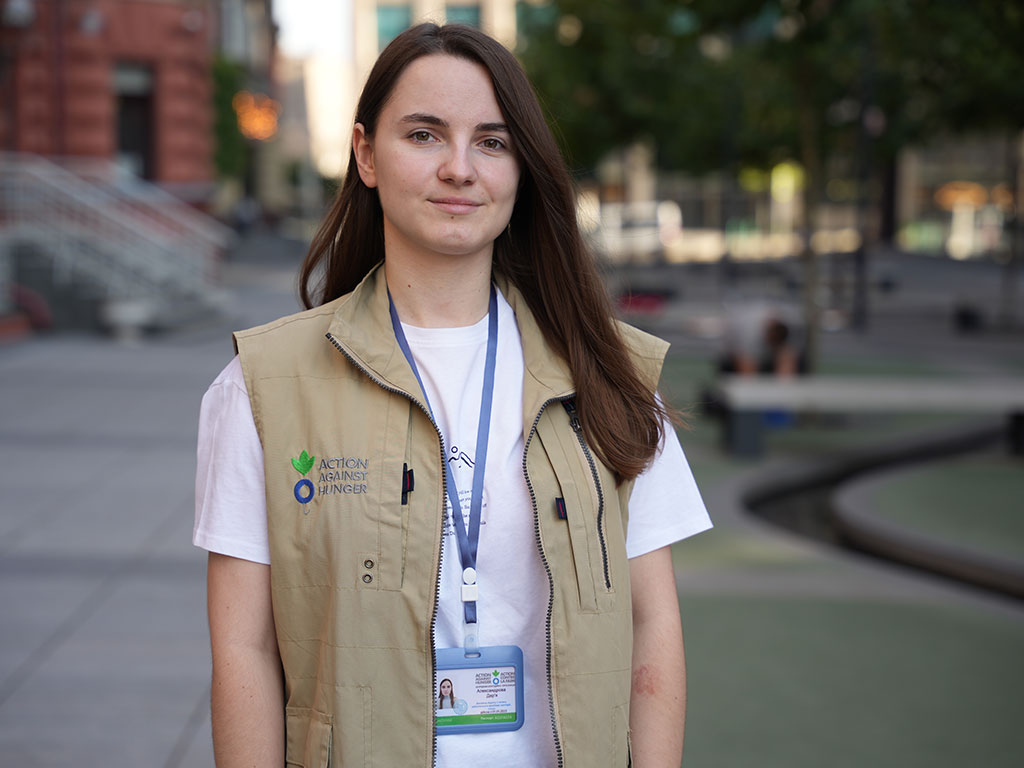 Daria is an Action Against Hunger staff member in charge of providing Ukrainians with clean water, safe toilets, and good hygiene. In total, around 30,000 people in the Dnipro region have received hygiene kits. Photo credit: Action Against Hunger/ Arthur de Poortere.
Daria is an Action Against Hunger staff member in charge of providing Ukrainians with clean water, safe toilets, and good hygiene. In total, around 30,000 people in the Dnipro region have received hygiene kits. Photo credit: Action Against Hunger/ Arthur de Poortere.
What happens next?
In 2024, the humanitarian situation could deteriorate further if Russian army attacks on civilian and energy infrastructure continue to increase – particularly in areas close to the frontline where aid is struggling to get through. In this scenario, many Ukrainians could be forced again to leave everything behind to save their lives.
The wave of solidarity that followed the launch of Russia’s invasion in February 2022 is showing signs of weakening as the conflict drags on and other crises demand a response.
In December 2023, the UN estimated that US$3.9 billion were needed to provide enough humanitarian aid. But only 60% of this sum has been pledged so far.
Needs continue to grow. And public services are unable to cope on their own. Considering the scale of the crisis, maintaining funding over the long term is essential if humanitarian organisations like Action Against Hunger are to continue their vital work in Ukraine.

